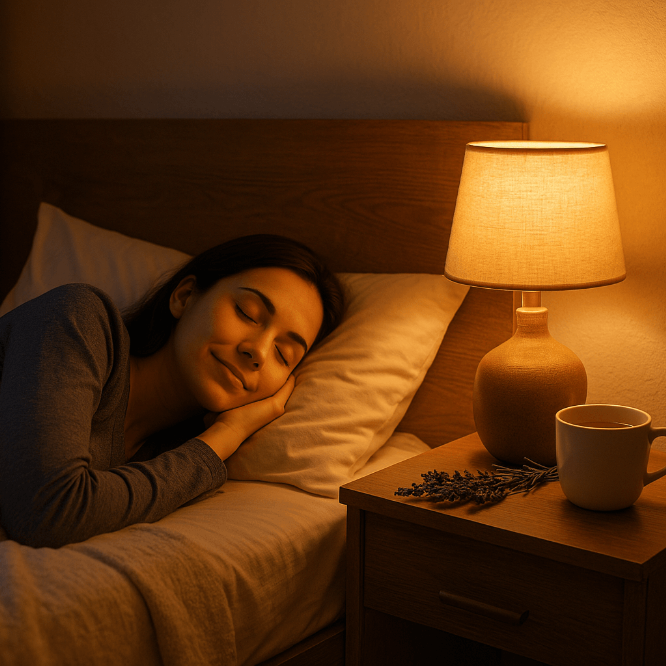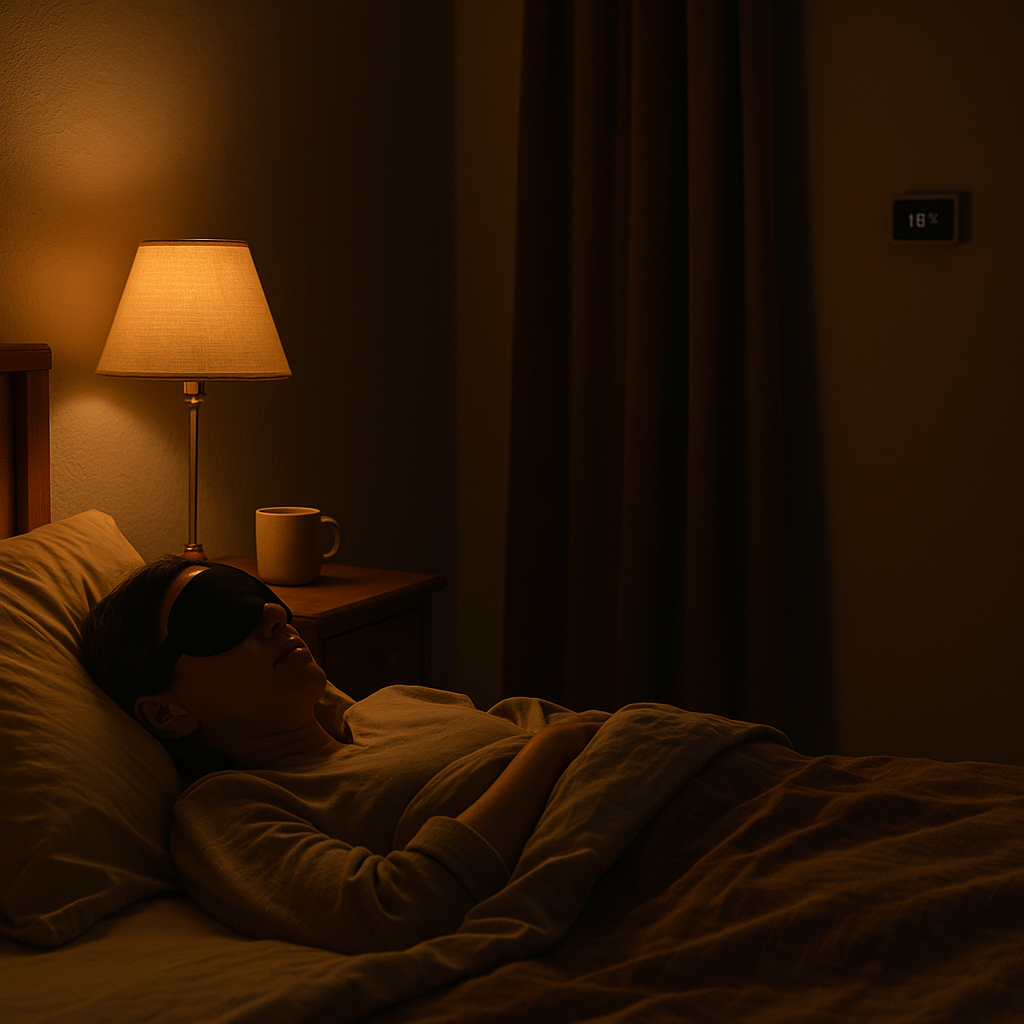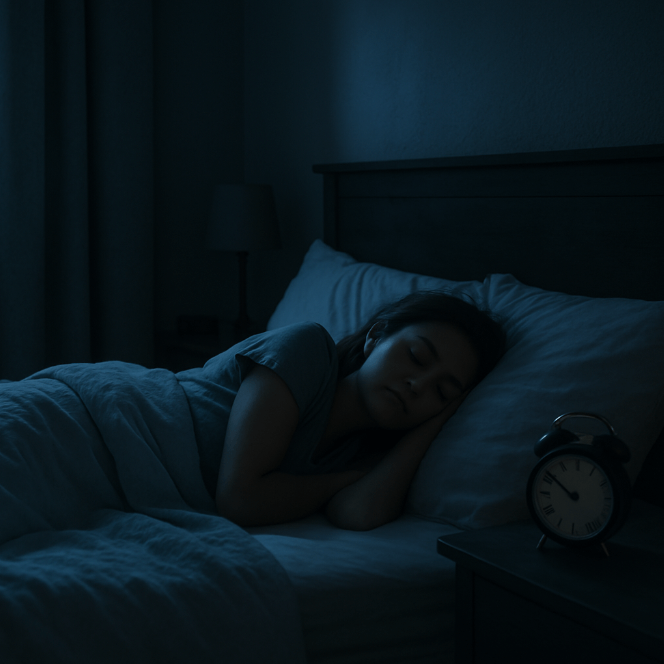We’ve all experienced the occasional sleepless night. But when the simple act of going to bed starts to fill you with dread, and your thoughts begin racing the moment your head hits the pillow, you may be facing something more specific: sleep anxiety.
In today’s always-on world, the pressure to “get a good night’s sleep” can ironically become a source of stress. Sleep anxiety is a growing issue that affects both mental and physical health, but with the right understanding and tools, it’s something you can manage—and even overcome.
What Is Sleep Anxiety?
Sleep anxiety is a type of anxiety that specifically revolves around the fear of not being able to fall asleep or stay asleep. It can become a vicious cycle: the more you worry about not sleeping, the harder it is to sleep.
Unlike general anxiety, which can occur at any time, sleep anxiety is triggered by nighttime routines and thoughts about rest. People with sleep anxiety often report feelings of panic as bedtime approaches, as well as persistent worries about the consequences of not getting enough sleep.
Symptoms of sleep anxiety may include:
- Restlessness or racing thoughts when trying to sleep
- Increased heart rate or shallow breathing
- Feeling tense or physically uncomfortable in bed
- Frequently waking up in the night
- Dreading bedtime or feeling anxious during the day about sleep
Causes of Sleep Anxiety
Sleep anxiety can be caused by many factors, and often it's a combination of several. Here are some of the most common:
- Stress and Overthinking: Everyday worries - about work, relationships, money, or health - can carry over into the night, creating a mental environment that's not conducive to rest.
- Poor Sleep Habits: Using your phone in bed, having inconsistent sleep times, or consuming caffeine late in the day can all negatively affect sleep quality.
- Lifestyle Factors: Lack of physical activity, high sugar intake, and overstimulation before bed can disrupt your natural sleep-wake cycle.
- Mental Health Conditions: Generalized anxiety disorder, depression, and PTSD are commonly associated with sleep problems, including sleep anxiety.
- Past Sleep Struggles: A few nights of insomnia or restlessness can condition your brain to associate bedtime with stress or failure to sleep, reinforcing the anxiety.
How Sleep Anxiety Affects Your Body and Mind
Chronic sleep anxiety doesn’t just impact your nights - it affects how you function during the day, too.
Physical effects:
- Difficulty falling asleep or staying asleep
- Tension headaches or tight muscles
- Daytime fatigue
- Weakened immune system
Mental and emotional effects:
- Irritability or mood swings
- Difficulty focusing or making decisions
- Feelings of hopelessness about sleep
- Heightened general anxiety due to poor rest
When sleep becomes a nightly battle, it impacts everything from your work performance to your emotional resilience. And the more it persists, the more anxious you may become about the next night, deepening the cycle.
Practical Strategies to Calm Sleep Anxiety
Thankfully, there are several effective ways to reduce and even overcome sleep anxiety. Here are some calming, science-backed strategies:
1. Practice Mindfulness and Relaxation Techniques
Mindfulness practices such as deep breathing, meditation, or progressive muscle relaxation can calm your nervous system. Even five minutes of intentional breathing before bed can reduce anxiety.
2. Establish a Calming Nighttime Routine
Our bodies respond well to routine. A consistent, calming bedtime ritual - like dimming the lights, doing light stretches, or listening to soothing music - signals your brain that it’s time to wind down.
3. Reduce Screen Time Before Bed
Blue light from screens interferes with melatonin production, the hormone that helps regulate sleep. Aim to unplug from devices at least 30–60 minutes before bed.
4. Try CBT-I (Cognitive Behavioral Therapy for Insomnia)
CBT-I is a highly effective, research-backed therapy that helps you change negative thoughts about sleep and teaches healthy sleep habits. Many people find relief in just a few weeks.
5. Keep a Sleep Journal
Writing down your thoughts, worries, or even a simple gratitude list before bed can help "empty your mind" and reduce mental clutter. Over time, journaling can help identify patterns and triggers.
6. Limit Stimulants
Caffeine, alcohol, and sugar can all disrupt your sleep. Try cutting back in the hours leading up to bedtime to support your body’s natural rest cycle.
When to Seek Professional Help
If sleep anxiety is starting to affect your ability to function during the day, or you’ve tried self-help strategies without success, it might be time to speak with a professional.
Signs it’s time to get help:
- Frequent or severe sleep disruptions
- Persistent anxiety around sleep, even during the day
- Physical symptoms like panic attacks or chest tightness at night
- Feeling overwhelmed, hopeless, or depressed
Sleep specialists, therapists, and doctors can provide treatments ranging from talk therapy to medication to help break the cycle and get your sleep back on track.
Sleep anxiety can feel frustrating and exhausting, but it’s not permanent - and you’re not alone. Understanding the root causes and taking small, intentional steps each night can lead to meaningful improvements over time.
Conclusion
The most important thing? Be gentle with yourself. Sleep is not a test you need to pass - it's a natural process your body wants to return to. Tonight, let go of the pressure. Breathe in calm, breathe out worry. You deserve rest, and it is within reach.
At Slumberite, we believe better sleep starts with better support, from calming tools to thoughtful guides that help you unwind with intention. Because when you sleep right, you live better—and you deserve that, every night.



Leave a comment
This site is protected by hCaptcha and the hCaptcha Privacy Policy and Terms of Service apply.